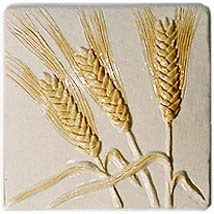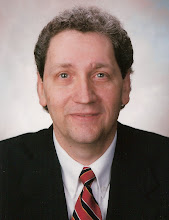He assumed it was a fluke. But when he investigated further, what he found amazed him:
"Because I'd never heard of controlled experiments affirming prayer, I assumed this study stood alone... I began to probe the scientific literature for further proof of prayer's efficacy. I found an enormous body of evidence: over one hundred experiments exhibiting the criteria of 'good science,' many conducted under stringent laboratory conditions, over half of which showed that prayer brings about significant changes in a variety of living beings." (See the preface to Healing Words by Larry Dossey, M.D. published by Harper San Francisco in 1993.)

If you read Dr. Dossey's book, you may be disappointed to find that the "prayer" in these experiments isn't confined to Judeo-Christian praying. All kinds of prayer and meditation were included in these studies.
And some readers will be skeptical of any book or experiment that tries to "prove" that prayer makes a difference. We walk by faith, not by sight.
But still, there's something about healing prayer. It seems, even according to scientific studies, that just the act of praying for someone can heal them.
The Bible, of course, is full of healing prayers. In fact, I suppose almost every religion has some sort of belief in prayer that heals.
So how do we sort out the chaff and keep the wheat? Well, one of the most powerful concepts attached to prayer, and to prayers that heal, is covenant.
When King Hezekiah of Judah fell ill, he got bad news. Jehovah instructed the prophet Isaiah to tell the king, "Put your house in order, because you are going to die; you will not recover." (Isaiah 38:1 NIV).
Now, this wasn't some kindly old doctor in a white coat saying compassionately, "I think you may be terminal, but we'll keep trying."
This was Isaiah the prophet, a man who heard directly from Jehovah God. And his message came right from the throne of the Most High; "you will die".
Despite that, Hezekiah "turned his face to the wall and prayed to the LORD, 'Remember, O LORD, how I have walked before you faithfully and with wholehearted devotion and have done what is good in your eyes.'" (Isaiah 38:2-3 NIV).
That prayer worked before Isaiah the prophet made it out of the building. God stopped him and sent him back to Hezekiah with the news that he would live fifteen more years!
Why? Why did that prayer for healing work so quickly? Mainly because Hezekiah was a covenant-keeper.
If you read his story in 2 Chronicles and 2 Kings, you'll find that Hezekiah brought reform to Judah immediately upon becoming king. Although his morals slipped at times, he worked hard to reestablish the covenant and bring God's people back to keeping it.
So healing prayer that's truly effective gets its energy from one's covenant with God. If Hezekiah hadn't prayed, he would have died. He changed God's mind by his prayers... because he was in covenant with Jehovah.
Although the Old Covenant is no longer in effect, we as believers on Christ have a New Covenant that's far better.
Check it out in the Book of Hebrews (especially chapter eight) and you'll find new energy for healing prayer.





